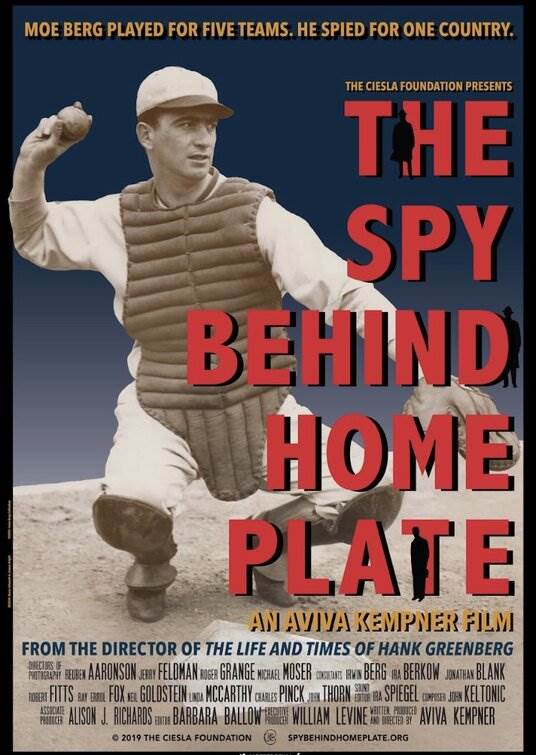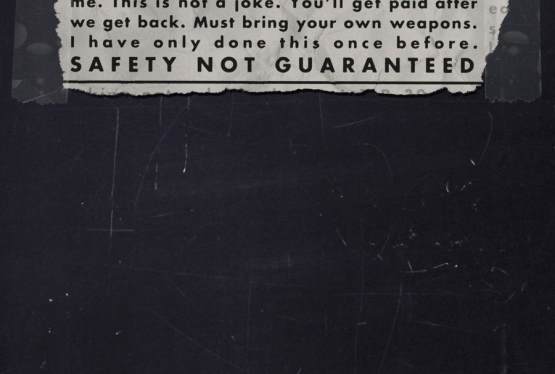
A year ago a movie starring Paul Rudd (Ant-Man and the Wasp) called The Catcher Was A Spy was released in theaters. It was a dramatization of the life of Major League Baseball player Moe (Morris) Berg, who apparently worked for the Office of Strategic Services (OSS) as a spy during World War. Now Director Aviva Kempner (Rosenwald) is bringing the real-life story of Berg to screens in her new documentary, The Spy Behind Home Plate. The hour and forty-minute film offer a glimpse behind the man as told by those who knew him.
Moe Berg was born in New York, the third child of Bernard and Rose Berg. While the family was Jewish they were not very religious, though their religion always managed to play a part in their lives as anti-semitism was very alive in the early and middle 1900s. Bernard wanted his eldest son to be a doctor, his daughter to be a school teacher and Moe to be a lawyer. Moe, however, had other plans and wanted to be a baseball player, which his father was adamantly against. Moe eventually did both as he earned his law degree while playing the major leagues.
Moe, who was extremely intelligent, studied languages as an undergrad at Princeton University and supposedly knew a dozen different languages. He also loved to travel and kept to himself a lot so when The United States got involved in World War II and created the OSS, Berg was an ideal candidate. Over the next several years he traveled the world and even went behind enemy lines - a very dangerous idea for a Jew from New York - to learn everything he could about the German research on the atomic bomb. Learning all he could, he brought the research and the scientists working it to America to create what eventually became that atomic bomb.
Kempner mainly uses interviews with friends and family along with archived footage to tell Berg's story. Conversations with his older brother, Sam, children of his colleagues in baseball members of the OSS, and historians help to weave to gather a tale of a brilliant, charming man who had a mild talent for baseball. However it was his sharp mind that was his real talent and helped him manipulate the game when he played as well as people to get information when he was a spy,
Kempner does a decent job of telling Berg's story but takes most of the movie to get to the part of his involvement in World War II. While the lead-up information and background are important, it takes a while to get there and then spends only really about fifteen or twenty minutes focusing on that aspect of his life. Meanwhile, Kempner uses most of the film to give attention to an area she probably knows best - baseball, She lays a solid foundation into Berg's life but perhaps it was too solid as it gives quite a bit of information about the game and not enough about Berg, the spy.
If you are a fan of either baseball or WWII history thesis one documentary you will want o see as it chronicles the life of one of the most interesting men to play the game/ service his country, both which he did in the most unique ways.
Grade: B-



